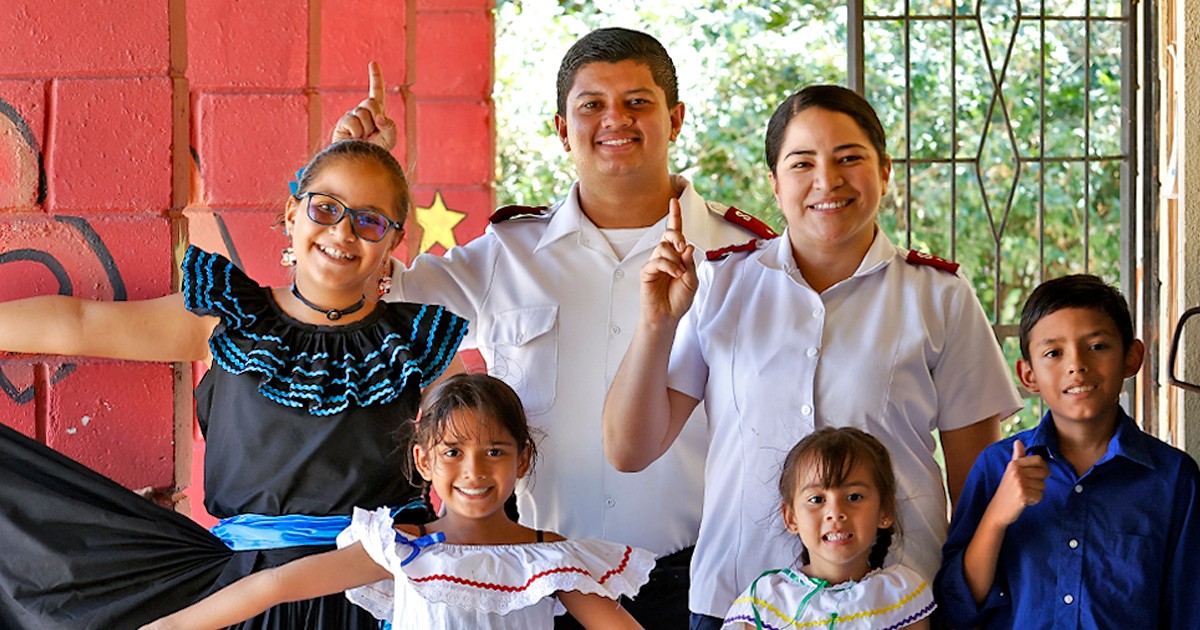I signed this Soldier's Covenant when I was 14, during a worship service at my corps in Happy Valley, N.L. It was a significant step in my Christian life, a public declaration of faith in Jesus Christ and a commitment to demonstrate my faith through service. My corps officers led me through the ceremony and then prayed with me to ask God's blessing and help to keep this covenant.
Becoming a soldier most closely resembles baptism in other denominations—a true soldier of The Salvation Army is a disciple of Jesus Christ.
The word soldier may sound old-fashioned, but it's who we are—an Army with a mission to share the love of Jesus Christ, meet human needs and be a transforming influence in the communities of our world. To carry out this mission, we need people who are committed to spreading the good news of the gospel and to living out their faith with Christlike compassion. We need people who are ready to serve wherever the Army is engaged in caring, outreach ministries. We need soldiers.
The Army seeks to “save souls, grow saints and serve suffering humanity,” as General John Gowans said. But our current declines in attendance and membership can be linked to a lack of emphasis on growing saints or discipleship. Discipleship (or disciple-making) is one of our new territorial strategic priorities. We need to make an intentional effort to not only save souls but to help these new converts move toward Christian maturity—to be so moved with gratitude for God's love and grace that we look for ways to show our gratitude through loving service.
I realize that some followers of Jesus make the Army their church home without becoming soldiers, as adherents. We welcome and celebrate their helpful support and participation. But soldiers have added expectations. They embody integrated mission, holding word and deed together. The Soldier's Covenant has two parts: a statement of faith (word) and a parallel commitment to putting it into practice, with the grace and help of God (deed).
Soldiership reflects a level of engagement with the Army's mission, a level of confidence in what the Army believes and teaches, and a level of practice in living out our faith in Christ as part of his church. It gives our mission legs. Without soldiers, our mission is weakened.
So what can we do to help grow saints and make soldiers?
Refer to soldiership in a positive way. It's important for those in leadership to talk about the significance of soldiership and the reasons for new Christians to become soldiers.
Share testimonies. Ask people to share why they became a soldier and what it means to them, both young and new Christians, as well as those who have been soldiers for many years.
Offer soldier preparation classes. Discuss the solid biblical, theological foundation for soldiership and talk about further steps of faith and service.
Study in small groups. After studying the doctrines in my own devotional life, I led a small group through the Army's statements of faith and the Scriptures that support them. Some in the group were soldiers and some were distant members on a roll, who later made a public declaration of faith. We grew spiritually and deepened our commitment as we studied together.
Celebrate. Welcoming new soldiers is a sacred event in the life of the corps. Make it a special occasion with a sacred and celebratory atmosphere.
Soldiership is about mission in action in our neighbourhoods and communities. Let's consider how we can be more intentional about making soldiers—true disciples of Jesus Christ.
Lt-Colonel Junior Hynes is the secretary for program services. He will retire with his wife, Lt-Colonel Verna Hynes, in September.










But opportunities for service should be extended to all, regardless of whether or not people choose to become soldiers/officers. Its not a necessity in the mind of Jesus so why should it be with the S.A?